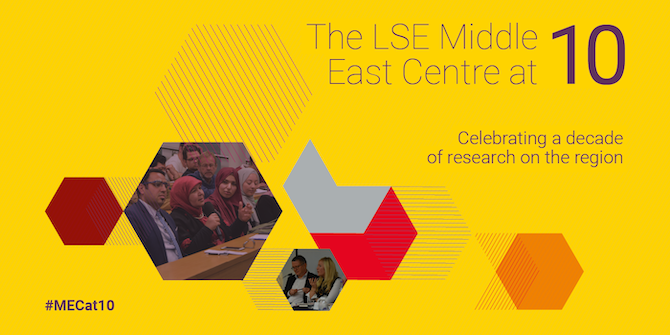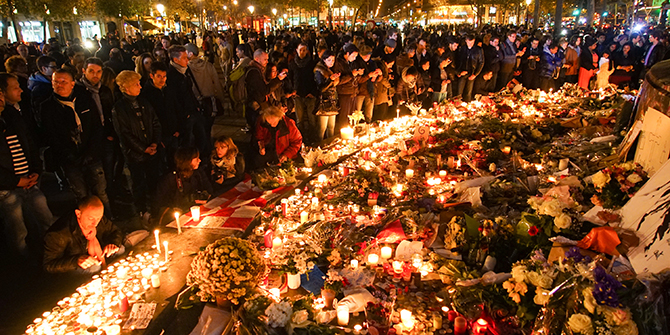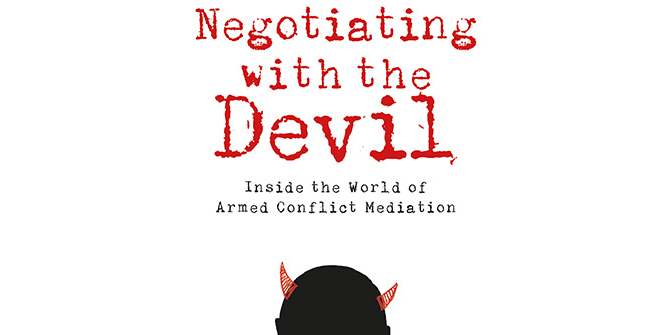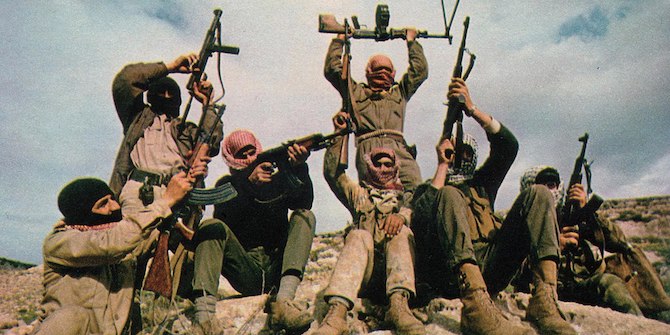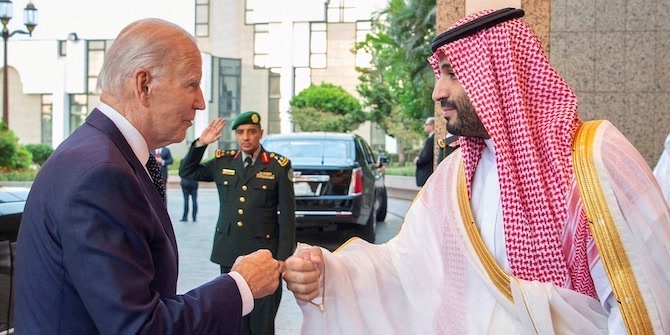by Jack McGinn
This year, the LSE Middle East Centre marks its 10th anniversary. Since 2010, the Centre has grown to become a large, thriving and vibrant research community with deep connections across LSE, within the Middle East and North Africa, and internationally. The Blog has grown alongside it, now receiving 20,000 views each month and continuing to publish regular analysis of the Middle East and North Africa in an immediately accessible and relevant format for a wide readership.
As part of our anniversary celebrations, we have asked the authors of the decade’s most popular and widely shared blogs to return to their topics, to reflect on the context of their interventions and to revise and update their work in light of what has happened in the years since. From 7 December, we will be releasing a new piece every day, with the full list available below.
Youssef Cherif, director of the Tunis Columbia Global Center, looks back at his 2015 piece on the 3000 Tunisians who left to join ISIS (Daesh), asking how issues of identity impacted violent extremism in Tunisia, the ‘beacon of hope’ of the Arab Spring. Marie Forestier returns to interview Noor, a Damascus-born refugee now living in Europe, six years after she had just arrived in Gaziantep after torture at the hands of the Syrian regime. Rana AlMutawa asks what is meant by ‘authenticity’, and who is asking, in places caught between ‘tradition’ and ‘modernity’ like Dubai. Raad Alkadiri reconsiders whether a shift from sectarianism to nationalism in Iraq was truly afoot in 2018, given failed attempts at reform despite a vibrant and diverse popular movement calling for it. Returning to Yemen’s border region of Al Mahra after three years, Eleonora Ardemagni looks at how local players are carefully balancing the regional powers vying for control. Wladimir van Wilgenburg looks at the fragile détente between the Syrian regime, Russia, Turkey and the Kurdish-led Syrian Democratic Forces, eight years after the establishment of the de facto autonomous region of Rojava. Alaa Tartir experiences déjà vu when examining incoming US President Joe Biden’s plans to return to the ‘old normal’ in Palestine, recalling 2014’s supposedly ‘new model for development’ in Palestine, championed by Secretary of State John Kerry in a failed attempt to convert ‘economic peace’ into ‘political peace’. Ali Al-Aswad, a former opposition MP in Bahrain who was forced to leave after the 2011 crackdown on pro-democracy figures, asks what reform is possible now after the demise of hardline Prime Minister Sheikh Khalifa bin Salman Al Khalifa. Finally Rasha Jarhum assesses the prospects for peace in Yemen, given the continued marginalisation of women in the political process.
Let us know your thoughts in the comments and online, using the hashtag #MEC10.
This is part of a series revisiting the Centre’s most popular blogs of the past decade, celebrating our tenth anniversary and asking the authors to return to their pieces and offer some updates. Read the introduction here, and see the other pieces below.
In this series:
- Introduction by Jack McGinn
- The 3000, Five Years Later: The Tunisians Who Joined Daesh by Youssef Cherif
- The Way Forward for Syrian Survivors of Sexual Violence by Marie Forestier
- Dishdasha Blues: Navigating Multiple Lived Experiences in the Gulf by Rana AlMutawa
- Sectarianism to Nationalism Reconsidered by Raad Alkadiri
- Caught in the Gulf Rivalry: Yemen’s Al Mahra Avoids the War Despite ‘Collateral Militarisation’ by Eleonora Ardemagni
- The Future of the Syrian Democratic Forces: One Year after the Liberation of Baghouz and the Turkish Invasion by Wladimir van Wilgenburg
- Biden’s Impending Billions to Palestine by Alaa Tartir
- Ruling Family Solidarity at the Expense of Bahrain’s Unity by Ali Al-Aswad
- Peacebuilding Without Protection? Yemeni Women’s Barriers to Peace by Rasha Jarhum


